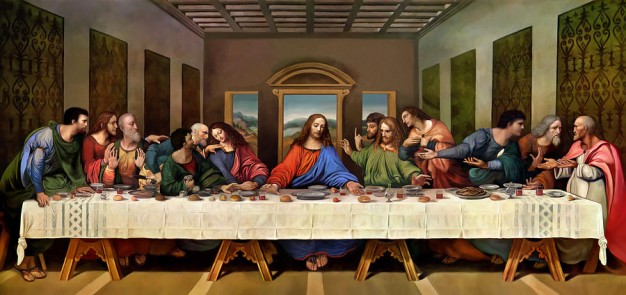

How We Can Embrace Thanksgiving and Resist the Siren Song of Shopping
In an article in Sunday’s New York Times titled, “How to Defeat the Impulse Buy,” psychologist David DeSteno suggests that the best way to resist impulse buying this holiday season is, rather than focusing on resisting the temptations, which are legion this time of year, but instead by cultivating a sense of gratitude. He cites a study suggesting that people who come to a buying decision after thinking of something for which they are grateful are much more likely to resist an impulse buy than those who had just thought of an enjoyable activity, or even their day-to-day routine.
DeSteno points out the irony that Thanksgiving Day immediately precedes the frenzied holiday shopping season. He wryly comments, “Once again, a day traditionally meant to celebrate gratitude will inaugurate a month of rampant consumerism.” However, this ironic juxtaposition is also an opportunity. If it is, in fact, true that cultivating a sense of gratitude can help us resist the Siren Song of consumerism this holiday season, (and, one hopes, the rest of the year as well!), the traditional practice of gathering around a table with family, giving thanks, and sharing a meal of rich food may be just the antidote to the poison of an insatiable desire to consume. We fight the temptation to buy too much not with willpower, but rather by reorienting our priorities. To use DeSteno’s language, “rather than trying to override your decision-making impulses, a better strategy might be to try to change them” (italics in original).
DeSteno observes, “As hokey as it sounds, the solution to the shopping season’s excesses may lie in the very message of Thanksgiving itself.” This may sound hokey, but, actually, orienting our lives around gratitude is a countercultural act, a statement of resistance as the shadow of Mammon spreads across the land.
The more we practice gratitude, the more we become grateful people, and the more we become grateful people, the less likely we will be to buy something reflexively. In fact, after some time, we will reflexively give thanks for what we have, and impulse buying will no longer make sense within our, to use St. Paul’s words, “renewed mind” (Romans 12:1-2). It is only through the intentionality of practicing gratitude, though, that this can happen. And that requires hard, focused work, work devoid of saccharine sentimentality.
Of course, as Christians, we of all people have the resources to cultivate a sense of gratitude. In fact, the central act of Christian worship is often called “The Eucharist,” which comes from a Greek word meaning “thanksgiving.” When Jesus was at the Last Supper with his disciples he “gave thanks” (cf. Matthew 26:27, 1 Corinthians 11:24) before breaking the bread and pouring the wine. As early Christians began to gather each week for worship, the meal that Jesus commanded be shared “in remembrance of him” became central. Within a generation after the Apostles, Christians began referring to this meal as The Eucharist. We remember Jesus giving thanks for the bread and for the wine, and we are giving thanks as the bread and wine become means of God’s grace to us, tangible expressions of his sacrifice for us, the sacrifice through which our sins are forgiven, new life and new community are made possible. We are grounded in the hope that as we give thanks, the love of Jesus demonstrated in and through the cross might move through us into the world around, boldly proclaiming that opting out of the never-ending cycle of consumption is not only possible, but beautifully compelling.
As we gather around our tables on Thursday, it is essential that we take time to give thanks for the many blessings in each of our lives. In doing so we are opening ourselves to the possibility of becoming grateful people, grateful people who are able to resist the allure of clever messages designed to appeal to, to use DeSteno’s words, “one of the mind’s greatest vulnerabilities: the innate human preference for rapid reward, or immediate gratification.”
My hope is that our Thanksgiving tables might be a foreshadowing of the Eucharistic table, where our individual thanksgivings find their ultimate fulfillment—the decisive defeat of sin and death and the beginning of the restoration and renewal of all things. Reconciliation with God, with our fellow image-bearers, and the entire cosmos are becoming realities.
It could be that, as many in our culture become increasingly aware of the problem of consumerism, and attempt to cultivate a sense of gratitude, the Eucharistic table, rather than bizarre or offensive, will become the object of longing, the place where we gather, to use the words of N.T. Wright in his book After You Believe, “the praises of the world and the needs of the world and present them before the God we know in Jesus.” I only hope that I, and the body of Christ of which I’m a part, might extend the invitation.
